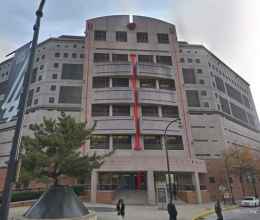
Atlanta mayor orders restriction of access to pot conviction records
By Arielle Kass | The Atlanta Journal-Constitution | December 17, 2019
Atlanta Mayor Keisha Lance Bottoms wants to restrict public access to people’s criminal records for convictions of less than an ounce of marijuana — an executive action announced Monday that she said was “in keeping with our commitment to meaningful criminal justice reform.”
Bottoms’ order is consistent with the city’s decision to decriminalize small amounts of marijuana, said Andrea Young, executive director of the ACLU of Georgia. She said some of the worst racial disparities in law enforcement show up in pot charges.
“We look forward to a day when no one faces criminal charges because of marijuana use,” Young said in a statement.
Across the country, prosecutors in cities like Seattle, Chicago and Los Angeles are erasing thousands of marijuana convictions. Recreational pot is legal in at least 11 states, including Washington, California and Illinois.
Marijuana is still illegal in Georgia. A law allowing hemp farming passed by the state legislature this year has led several solicitors to announce that they will not prosecute misdemeanor marijuana cases because of the difficulty in distinguishing marijuana from hemp.
Some details of Bottoms’ order, first announced via tweet, are still being worked out. The city spokesman said to the best of his knowledge, it would not have any effect on city policies like pre-employment drug testing.
Jill Cartwright, the Georgia statewide organizer for the racial and economic justice group Southerners on New Ground, said she thought the mayor’s move was important but doesn’t go far enough, because police will still have access to conviction records.
Most people who are arrested on marijuana charges are black males, Cartwright said, and the arrests can prevent them from finding housing or jobs. The disproportionate impact on communities of color makes it harder for people to break cycles of jail and poverty, she said.
Cartwright called Bottoms’ action “a band-aid.”
“She’s going in the right direction,” Cartwright said of the mayor. “I think it will honestly help a lot more people get on their feet. It will help communities heal when people move on from the past. I think it’s a beautiful thing.”
Related content

